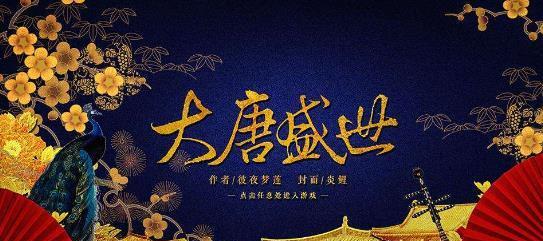"Xing" has the meaning of beginning, establishment, but also the meaning of prosperity, the history books appear in the "Tang Xing" generally refers to the Tang Dynasty since the founding of the country, that is, the "Xing" here is the beginning, the establishment of the meaning, does not refer to the Tang Dynasty's Kaiyuan prosperous era, here the four girls give a few examples to illustrate:

In the first year of the new century (736), Tang Xuanzong revealed to the chancellor Zhang Jiuling that he wanted to raise Shuo Fang jiedu to make Niu Xianke, the reason is that Niu Xianke was shrewd and strong when he served in the Hexi Army, which made the Hexi Army's treasury very rich, and the weapons used were also very sophisticated. Tang Xuanzong intended to promote Niu Xianke as Shangshu, but Zhang Jiuling did not agree, and he used this reason to reject Tang Xuanzong:
"No, you can't. Shang Shu, Ancient Nayan, since Tang Xing, only the old phase and the Yang calendar have been for those who have virtue and prestige in China and abroad. The Xianke Benhe Huang envoy, now gathered in Qingyao, fearing shame on the imperial court. ”
This means that Shang Shu is the ancient Nayan, a very important official position, since the establishment of the Tang Dynasty, it has always been the past prime minister or people with fame and virtue in China and abroad to do this official position, and Niu Xianke is just an envoy in the Hehuang region, and now to let him occupy a high position, is this not to punch the face of the imperial court? Where will this be the face of the imperial court? In short, Zhang Jiuling's attitude is three words: no.
Later, Tang Xuanzong was still not dead-hearted, and wanted to give Niu Xianke a knighthood, but he was also stopped by Zhang Jiuling, for this matter, Tang Xuanzong was very angry, and Li Linfu's attitude was very good to please Tang Xuanzong. This also laid the groundwork for zhang jiuling's later resignation and Li Linfu's appointment as prime minister. We see that in the above passage, "Tang Xing" refers to datang since the founding of the People's Republic of China.
Another example would look like this:
Since Tang Xing, the border marshals have used loyal and famous ministers, who will soon be in office, not remotely led, not unified, and famous writers are often admitted as prime ministers. ...... And in the Kaiyuan, the Son of Heaven has the ambition to swallow the four Yi, and it is not easy for the border generals for more than ten years, and they have been in office for a long time.
In fact, generally speaking, the prosperous period of the Tang Dynasty is the Kaiyuan and Tianbao years of the reign of Tang Xuanzong. The meaning of the above passage is obvious, "Tang Xing" still refers to "The Tang Dynasty since the founding of the Country". The meaning of the above passage is that since the founding of the Tang Dynasty, the frontier commanders have used loyal and honest ministers who are dedicated to serving the country, and the principle adopted by them is "soon to be appointed, not remotely led, and not unified", and the generals who have made achievements in the frontier can often use their merits to realize their long-cherished wish of entering the country.
But by the beginning of the new century, this principle had been broken, and Tang Xuanzong himself had ambitions and wanted to create a prosperous world, so he paid special attention to the security of the frontier. This period coincided with the period when the system of moderation flourished, and their appointments often did not change for more than ten years, and slowly became long-term appointments; and the situation of remote leadership also began to appear, and some of the princes and prime ministers (Xiao Song, Niu Xianke, etc.) began to lead the festival envoys remotely; and then in order to strengthen the links between the frontiers and facilitate management, more and more festivals adopted the principle of concurrent unification, that is, one person concurrently held several festival envoys. Wang Zhongsi in the Kaiyuan period once led the four towns to jiedushi alone, and an Lushan, who rebelled during the Tianbao years, was still a three-town jiedushi envoy a moment before the army, holding 200,000 troops in his hands.
The "xing" in the above two examples means beginning and establishing, and is not used to refer to the prosperity of the world. Another word similar to "Xing" is "ZTE", which we are familiar with is the famous generals of ZTE who quelled the anshi rebellion: Guo Ziyi, Li Guangbi and Gugu Huaien. Among them, Li Guangbi was pushed as "the first in ZTE in battle merit". They are all famous generals who quelled the anshi rebellion and revived the Tang Dynasty, but unfortunately, except for Guo Ziyi, who had a fairly acceptable ending because he was particularly able to endure, the fate of the other two was really not very good, one was afraid of being framed and supported the army to respect himself and ended up depressed; the other was not trusted and rebelled and rebelled and died violently in the army. I have to say that ZTE celebrities are not good.